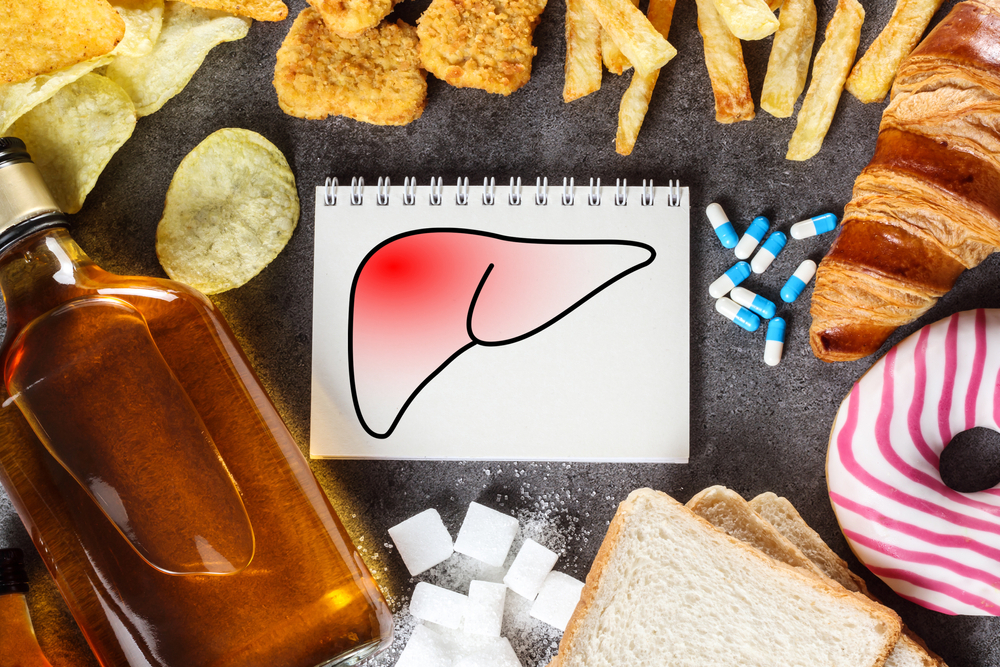Last Updated:
January 22nd, 2025
 There are an estimated 1.25 million people in the UK suffering from eating disorders like anorexia and bulimia. Eating disorders create dangerously unhealthy relationships between people and the food they eat, often resulting in extreme and life-threatening changes in weight.
There are an estimated 1.25 million people in the UK suffering from eating disorders like anorexia and bulimia. Eating disorders create dangerously unhealthy relationships between people and the food they eat, often resulting in extreme and life-threatening changes in weight.
How is obesity defined?
Obesity is a medical condition characterised by excessive body fat, which poses a significant health risk. Contributors to obesity include a poor diet, lack of physical activity, genetics and several eating disorders.
In the UK, obesity is measured using Body Mass Index (BMI). Healthcare providers calculate BMI by measuring:
BMI = Weight (kg) divided by the square of your height (m²).
For imperial measurements, an added conversion factor of 703 is needed, represented as:
BMI = (Weight (lbs) / Height (inches)²) x 703
According to the NHS:
- A BMI between 25 and 29.9 is classified as overweight.
- A BMI of 30 to 39.9 is classified as obese.
- A BMI of 40 or higher is classified as severely or morbidly obese.
How is anorexia nervosa defined?
Anorexia nervosa, more commonly called just anorexia, is an eating disorder characterised by an intense fear of gaining weight and a distorted body image. Anorexia is officially catergorised into two subtypes:
- Restrictive anorexia: A person with a restrictive subtype of anorexia will severely limit the amount of food they consume, often to a dangerous level.
- Binge-purge anorexia: In the binge-purge subtype, a person may episodically overeat or binge-eat, often followed by vomiting or using laxatives or diuretics to remove what was consumed.
What are the impacts of obesity and anorexia?
Both obesity and anorexia raise the risk of complex health issues.
Health risks associated with obesity
Obesity levels are of increasing concern for health organisations like the British Heart Foundation. Their research shows that in 2021, 31,000 heart and circulatory deaths were attributed to excess weight and obesity in the UK. That equates to roughly 85 deaths per day from heart and circulatory diseases linked to a BMI of 25 or higher.
Some risks associated with classified obesity include:
- Heart disease: Increased risk of heart-related illnesses, including heart attacks and high blood pressure.
- Type 2 diabetes: Obesity is a leading cause of insulin resistance, which often leads to diabetes.
- Stroke: For an obese person there’s a higher chance of blood clotting and reduced blood flow to the brain, so a stroke becomes more likely.
- Sleep apnea: Sleep conditions like sleep apnea can occur as excess weight can block airways and disrupt breathing.
- Osteoarthritis: Added weight puts extra pressure on joints, increasing the risk of arthritis, especially in the knees and hips.
- Certain cancers: Obesity is linked with several types of cancer, including breast, kidney and liver cancer.
Health risks associated with anorexia
People suffering from anorexia are often trapped in a relentless pursuit of thinness, self-imposing their starvation and dangerously reducing their food intake to the point of malnutrition.
Health risks associated with anorexia nervosa include:
- Osteoporosis: Prolonged anorexia can result in a loss of bone density, leading to brittle bones and a higher risk of fractures.
- Kidney damage: Dehydration and malnutrition can impair kidney function, potentially leading to kidney failure.
- Anemia: A person’s anorexia can result in insufficient intake of essential nutrients and a low red blood cell count.
- Impaired fertility: Some research suggests that prolonged anorexia affects hormone levels and menstrual period regularity. Further research reports that as many as 70% of women with anorexia also had their period stopped for up to three months.
Are there commonalities between obesity and anorexia?
Both anorexia and obesity are complex neurobiological disorders with severe metabolic consequences. Now that we’ve laid out the risks and implications involved with obesity and anorexia, it may be beneficial to examine commonalities between how the two conditions often form.
If a person were to conceptualise an image of the two conditions in their mind, they might create a picture of two complete opposites. However, there may be more than meets the eye.
For example, not everyone who has anorexia nervosa is underweight. A person with atypical anorexia nervosa has all the symptoms of anorexia except that they’re not underweight.
Studies into the causes and risk factors for eating conditions are ever-evolving. Some common contributing factors for both obesity and anorexia may include:
The pressure to fit a certain mold
Across countries, cultures and societies, accepted “norms” toward a collective standard of beauty can create psychological pressure. Different types of modern media frequently portray an unrealistic body image, causing many people to become obsessed with their appearance. There is nothing inherently wrong with “wanting to look healthier” as long as the inner desire actually to become healthy is not dismissed. One example could be touch-up photo editing software used in modelling, with models wanting their bones to protrude more or cheekbones to stand out.
The effects of societal pressure may be especially malevolent for younger people. Eating disorders can form in adolescence as a teenager does everything they can to fit in with a group.
One study of children in 6th to 8th grade found that peer pressure significantly influences the development of eating disorders in both males and females. With the neverending pressures of social media at their fingertips, many young people resort to unhealthy eating habits to manage their appearance. These habits, unfortunately, raise the risk of many kinds of eating disorders.
Psychological factors
The development of obesity and anorexia may be attributed to many negative psychological contributors. Factors such as anxiety, depression and low self-esteem may increase the dangers of developing an eating disorder.
Mental health challenges can drive unhealthy attitudes and behaviours toward food. For example, many people who suffer from obesity turn to “emotional eating.” On the other hand, people with anorexia apply restrictions on what they eat, usually having detrimental effects.
Some people who have anorexia may in fact be less concerned with how they appear and more concerned with having control of what they eat. A sense of control has been described as a central factor in eating disorders. Having too much or too little control over what you eat can contribute to developing anorexia or obesity. We encourage those suffering to recognise the balance needed to develop healthier eating habits.
Final thoughts
In comparing obesity and anorexia, it becomes clear that both conditions carry significant physical and psychological risks. Both can be largely attributed to unhealthy relationships with food.
Rather than viewing one as worse than the other, it is more beneficial to recognise the need for compassion and support. As a person suffers from an eating disorder, placing excess blame upon oneself often happens. Many people develop feelings of shame and guilt around their eating habits and slide further away from the support they need.
Societal pressures often create a stigma around how we should look from the outside, which can dangerously override the importance of how we should feel on the inside. We encourage readers to maintain the balance between being kind to themselves and recognising the time that action might be needed.
I need support with an eating disorder
Working your way out of an eating disorder is incredibly difficult to do alone. If your relationship with food causes physical, mental or emotional problems, we want you to reach out to us.
Here at UKAT, we specialise in the treatment of many eating disorders. Our professional staff are trained to help you and your loved ones every step of the way. We provide complete recovery programmes that help you return to healthier living.
Contact us today for the care you need to get out of an eating disorder. We’re only one phone call away to help you toward a healthier life.
(Click here to see works cited)
- “How Many People Have an Eating Disorder in the UK?” Beat, www.beateatingdisorders.org.uk/get-information-and-support/about-eating-disorders/how-many-people-eating-disorder-uk/
“Eating Disorders.” National Institute of Mental Health, U.S. Department of Health and Human Services, www.nimh.nih.gov/health/topics/eating-disorders- “Around 31,000 Heart and Circulatory Deaths Attributed to Excess Weight and Obesity Every Year.” BHF, British Heart Foundation, www.bhf.org.uk/what-we-do/news-from-the-bhf/news-archive/2021/april/31000-heart-and-circulatory-deaths-obesity-each-year
- Wondmkun YT. Obesity, Insulin Resistance, and Type 2 Diabetes: Associations and Therapeutic Implications. Diabetes Metab Syndr Obes. 2020 Oct 9;13:3611-3616. doi: 10.2147/DMSO.S275898. PMID: 33116712; PMCID: PMC7553667.
- Pati S, Irfan W, Jameel A, Ahmed S, Shahid RK. Obesity and Cancer: A Current Overview of Epidemiology, Pathogenesis, Outcomes, and Management. Cancers (Basel). 2023 Jan 12;15(2):485. doi: 10.3390/cancers15020485. PMID: 36672434; PMCID: PMC9857053.
- S.H. Shomento B.A., and AbstractStudy Objective: To determine 1) menstrual weight (% normal body weight at which menses resumed or began following anorexia nervosa) and 2) effects of anorexia nervosa on subsequent fertility.Design: Retrospective. “Menstruation and Fertility Following Anorexia Nervosa.” Adolescent and Pediatric Gynecology, Elsevier, 16 Mar. 2016, www.sciencedirect.com/science/article/pii/S0932861019801172.
- Vo, Megen, and Neville Golden. “Medical Complications and Management of Atypical Anorexia Nervosa – Journal of Eating Disorders.” BioMed Central, BioMed Central, 16 Dec. 2022, jeatdisord.biomedcentral.com/articles/10.1186/s40337-022-00720-9.
- Meyer TA, Gast J. The Effects of Peer Influence on Disordered Eating Behavior. The Journal of School Nursing. 2008;24(1):36-42. doi:10.1177/10598405080240010601
- Dakanalis A, Mentzelou M, Papadopoulou SK, Papandreou D, Spanoudaki M, Vasios GK, Pavlidou E, Mantzorou M, Giaginis C. The Association of Emotional Eating with Overweight/Obesity, Depression, Anxiety/Stress, and Dietary Patterns: A Review of the Current Clinical Evidence. Nutrients. 2023 Feb 26;15(5):1173. doi: 10.3390/nu15051173. PMID: 36904172; PMCID: PMC10005347.
- Branley-Bell, D., Talbot, C.V., Downs, J. et al. It’s not all about control: challenging mainstream framing of eating disorders. J Eat Disord 11, 25 (2023). https://doi.org/10.1186/s40337-023-00752-9




